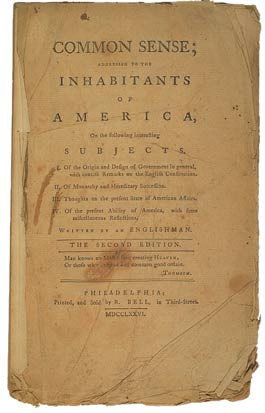

Paine’s advocacy for independence was not novel: newspapers had been publishing articles calling for separation from the British Empire years before Common Sense.īut Paine’s call for independence was particularly influential, its various editions selling throughout the American colonies and setting off fervent discussion of a rebellion against King George III. The anonymous author was later revealed to be Thomas Paine, an Englishman who emigrated to America at the suggestion of Benjamin Franklin, whom he met in London while Franklin was serving as the American colonies’ representative to Britain.īut Franklin could hardly have predicted the impact Paine would one day have on the fate of the colonies. So, to convince Americans that they should seek a clean break from Britain, an anonymous author published a pamphlet in support of American independence in January of 1776. There is not in the British Empire a man who more cordially loves a union with Great Britain than I do. Yet, despite these pitched battles, many – even among the men who would later lead the American Revolution and author America’s founding documents – still sought to reconcile relations with Britain, rather than wage war against it.įor example, Thomas Jefferson, who would later pen the Declaration of Independence, had in November 1775 written

By the end of 1775, American militia had already fought several battles against British troops as part of what would later go on to be called the American Revolutionary War.


 0 kommentar(er)
0 kommentar(er)
